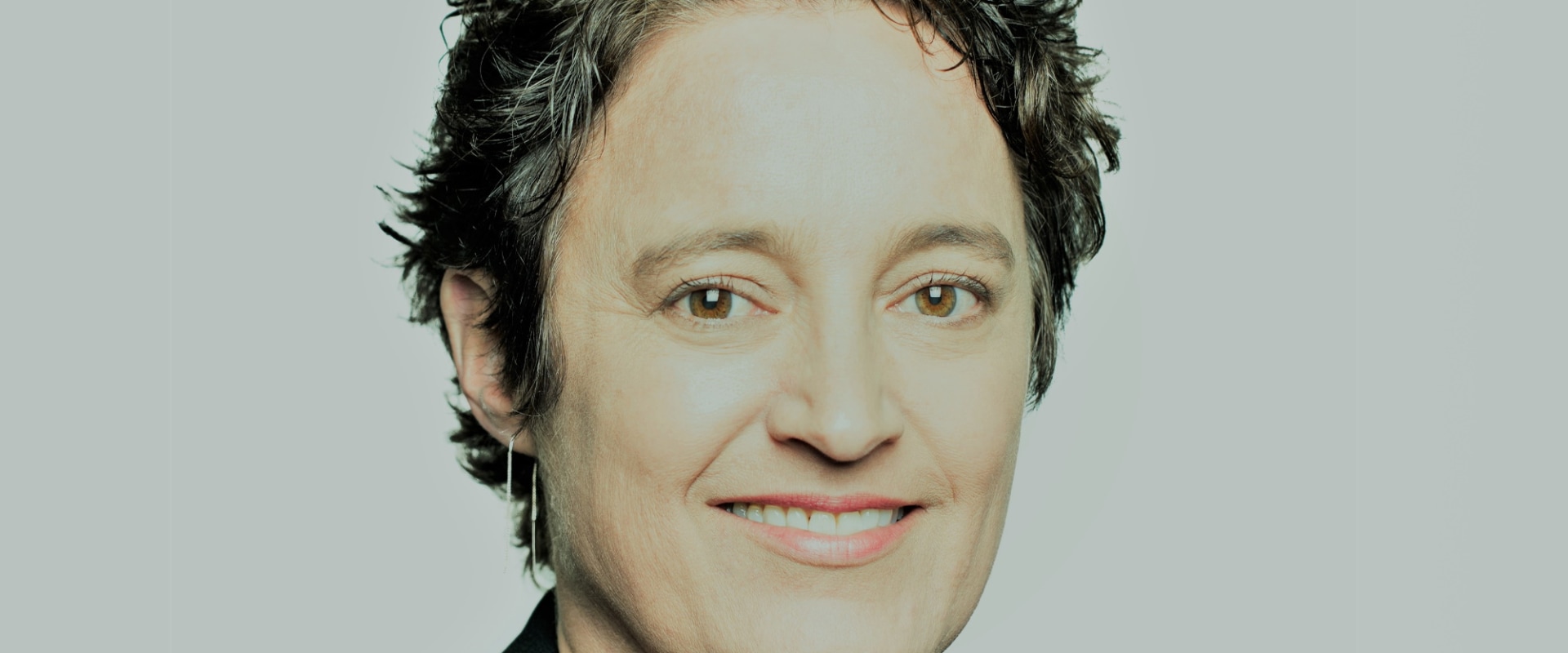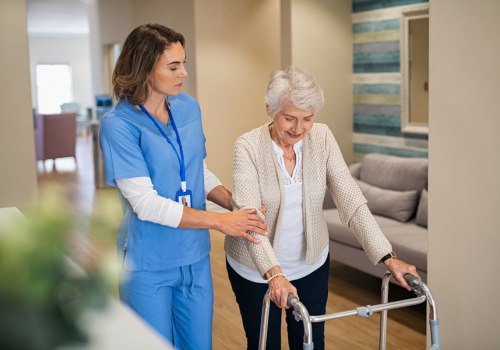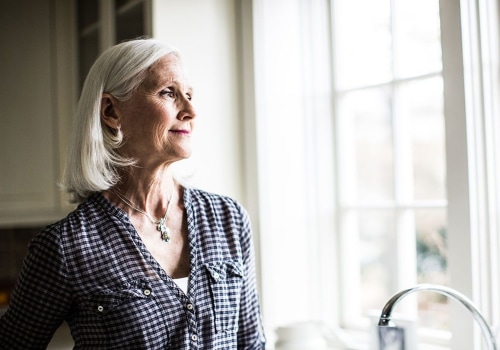In senior healthcare, addressing specific medical conditions becomes increasingly crucial. One such condition that affects many senior women is uterine fibroids. These non-cancerous growths in the uterus can cause discomfort and complications, particularly in older women who are already navigating various health concerns associated with aging. Fortunately, the relentless march of advancements in medical science has paved the way for innovative and effective fibroids treatment options. Among these, New York stands proudly at the forefront, exemplifying a commitment to providing comprehensive care for senior women that is both cutting-edge and compassionate. As women age, they often find themselves grappling with various health-related challenges. Uterine fibroids, though not typically life-threatening, can significantly impact a woman's quality of life in her senior years. These benign tumors can cause heavy menstrual bleeding, pelvic pain, pressure on the bladder or rectum, and even fertility issues. For senior women, fibroids can complicate existing health conditions, making it imperative to recognize the signs and address them with tailored and effective treatments.
Understanding Fibroids In Seniors
Understanding the particular characteristics of older women's fibroids is crucial for elder healthcare. Although uterine fibroids are primarily related to women of childbearing age, they can also affect older women and frequently present unique issues. Fibroids are benign growths that can go years without causing any symptoms; thus, their existence may come as a surprise for many older adults. However, the symptoms of fibroids, such as heavy menstrual bleeding, pelvic pain, and urine urgency, can exacerbate preexisting health conditions as people age. In New York, where healthcare professionals are attentive to early detection, this emphasizes the significance of routine check-ups and screenings as a cornerstone of senior healthcare.
Moreover, the diagnosis and treatment of fibroids in seniors, like those offered at Maiden Lane Medical Downtown, must consider the overall health and well-being of the patient. Seniors often have unique medical profiles and maybe managing other chronic conditions. Thus, the approach to fibroids treatment in New York is multidisciplinary, ensuring that the chosen intervention aligns with the patient's age, health status, and personal preferences. Understanding the nuances of fibroids in seniors is central to providing effective treatment and enhancing the overall quality of senior healthcare in New York and beyond.
Early Detection And Diagnosis
Early detection and diagnosis play a pivotal role in addressing uterine fibroids effectively. These non-cancerous growths in the uterus, while common in women of childbearing age, can also affect senior women. However, fibroids in seniors often present unique challenges, making timely identification critical. New York's commitment to enhancing senior healthcare includes a strong focus on the early detection and diagnosis of fibroids.
Regular check-ups and screenings are fundamental aspects of senior healthcare in New York. Healthcare providers leverage advanced diagnostic tools, such as ultrasounds and MRI scans, to accurately identify fibroids. These imaging techniques allow for precise localization and assessment of the size and number of fibroids, providing crucial information to tailor fibroid treatment strategies to the specific needs of senior patients.
The significance of early detection cannot be overstated, as it enables healthcare professionals to intervene promptly, mitigating potential complications and discomfort associated with fibroids. In New York, this proactive approach aligns seamlessly with the city's commitment to senior healthcare, ensuring senior women receive the care and attention they deserve in their journey toward fibroid treatment. By prioritizing early detection, New York's healthcare system is dedicated to enhancing the well-being and quality of life of senior women affected by fibroids.
Tailored Treatment Approaches
One size does not fit all, and this is particularly true when it comes to fibroid treatment. Uterine fibroids, though benign, can cause significant discomfort and complications, and their impact on senior women requires a specialized and individualized approach. New York's commitment to enhancing senior healthcare is evident in its dedication to offering tailored treatment approaches for fibroids.
When senior women seek fibroids treatment in New York, healthcare providers understand the importance of considering various factors, including the patient's age, overall health, and the specific characteristics of the fibroids. These factors play a pivotal role in determining the most suitable treatment strategy. While some seniors may benefit from medication to manage symptoms, others may require more invasive interventions.
In New York, fibroid treatment options include medication, minimally invasive procedures like uterine artery embolization (UAE), and surgical solutions such as myomectomy or hysterectomy. The treatment choice is made in consultation with the patient, considering her unique circumstances and preferences. This personalized approach ensures that fibroids are effectively addressed and aligns with New York's commitment to providing comprehensive and patient-centric senior healthcare. By tailoring fibroids treatment approaches to the individual needs of senior women, New York sets a high standard in enhancing their well-being and quality of life.
Minimally Invasive Techniques
When it comes to fibroid treatment in the realm of senior healthcare, the focus is not just on effectiveness but also on minimizing the impact on a patient's quality of life. This is where minimally invasive techniques shine. New York's commitment to enhancing senior healthcare extends to embracing these advanced approaches in treating uterine fibroids.
Minimally invasive techniques, such as uterine artery embolization (UAE) and laparoscopic myomectomy, have revolutionized fibroids treatment, especially for seniors. These procedures involve smaller incisions, reduced trauma to surrounding tissues, and quicker recovery times than traditional open surgery. The advantages of minimally invasive techniques are substantial for senior women, who may already be managing other health concerns.
UAE, for instance, involves blocking the blood supply to fibroids, causing them to shrink. This approach provides effective symptom relief and allows seniors to return to their daily routines faster. Similarly, laparoscopic myomectomy, which removes fibroids while preserving the uterus, offers a less invasive alternative to traditional hysterectomy. New York's healthcare providers are at the forefront of providing these minimally invasive techniques, contributing to a higher standard of senior healthcare in treating fibroids. By prioritizing patient comfort and recovery, New York ensures that senior women receive the best possible care in their journey towards improved quality of life through fibroids treatment.
Medication Management
Medication management is essential to fibroids treatment in the complex world of geriatric healthcare. Even though they are not malignant, uterine fibroids can cause discomfort and difficulties for older women, and medication frequently plays a crucial part in efficiently resolving these problems. A thorough awareness of the advantages and factors to be considered when managing medications for treating fibroids is part of New York's commitment to improving senior healthcare.
For some senior women, surgery or minimally invasive procedures may not be the preferred choice due to existing health conditions or personal preferences. In such cases, medication offers a viable alternative to manage fibroid symptoms. Healthcare providers in New York carefully assess each patient's needs and tailor medication regimens to alleviate symptoms such as heavy menstrual bleeding, pelvic pain, and pressure on adjacent organs.
Medications for fibroids treatment can be broadly categorized into hormone-based and non-hormone-based options. Hormone-based medications, such as birth control pills or hormone-releasing intrauterine devices, can help regulate menstrual bleeding and reduce the size of fibroids. Non-hormone-based medications, like tranexamic acid, aim to control heavy bleeding without affecting hormonal balance. The choice of medication depends on the individual patient's circumstances, overall health, and the specific characteristics of their fibroids.
In New York, healthcare providers are dedicated to ensuring senior women have access to various fibroid treatment options, including medication management. This approach aligns seamlessly with the city's commitment to enhancing senior healthcare by offering personalized and patient-centric solutions for fibroids, ultimately improving the quality of life for senior women seeking relief from these common yet troublesome growths.
Post-Treatment Care And Support
Comprehensive fibroids treatment extends beyond the procedure itself. Post-treatment care and support are critical to ensuring the well-being of senior women seeking relief from uterine fibroids. New York's medical gynecologists, renowned for their expertise in fibroids treatment, understand the importance of ongoing care to enhance the quality of life for their patients.
Senior women benefit from diligent follow-up care after undergoing fibroids treatment, whether through minimally invasive procedures, surgery, or medication management. Medical gynecologists in New York are dedicated to providing this essential support, ensuring that any post-treatment concerns are promptly addressed. This commitment to comprehensive care aligns with the city's mission to enhance senior healthcare.
Post-treatment care involves regular check-ups, imaging assessments, and open communication between the patient and their healthcare provider. Monitoring the status of fibroids, evaluating any potential recurrence, and addressing any new symptoms or concerns are integral to the post-treatment process. Additionally, medical gynecologists in New York often provide counseling and guidance to help senior women manage their overall health and well-being, empowering them to live fully following fibroid treatment.
Contact A Medical Gynecologist In New York
When addressing uterine fibroids and other women's health concerns, it's imperative to seek the expertise of a trusted medical gynecologist. In the heart of the bustling city, you'll find an oasis of specialized care at Maiden Lane Medical Downtown. Known for their commitment to enhancing senior healthcare and women's health, this esteemed medical facility offers a team of highly skilled and experienced medical gynecologists dedicated to providing comprehensive fibroids treatment.
Contacting a medical gynecologist in New York, particularly at Maiden Lane Medical Downtown, is your first step toward addressing uterine fibroids and improving your quality of life. Whether you suspect fibroids or have been previously diagnosed and seek guidance on treatment options, their knowledgeable gynecologists are ready to assist you. They understand the unique challenges that senior women face and offer personalized, patient-centric care to ensure that your health concerns are addressed with the utmost expertise and compassion.
Don't let uterine fibroids hinder your well-being. Reach out to a medical gynecologist in New York, and consider Maiden Lane Medical Downtown as your trusted partner in enhancing senior healthcare and women's health. Their dedication to excellence in fibroids treatment and post-treatment care ensures you receive the highest support on your journey towards improved health and a better quality of life.




